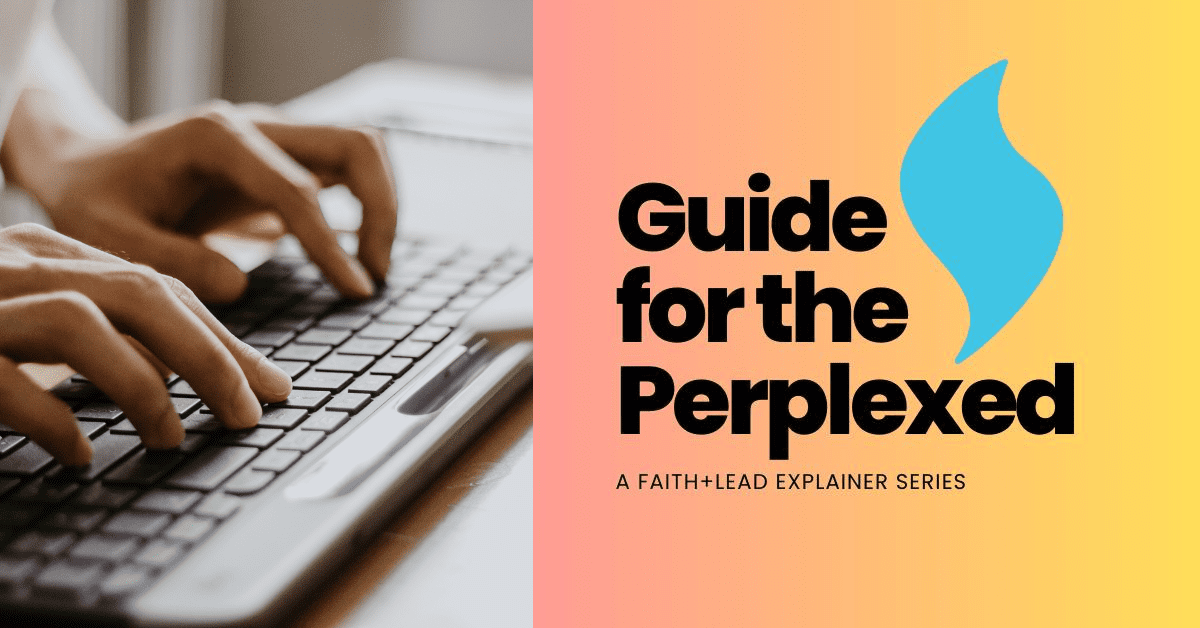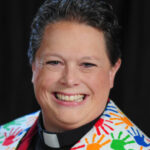The summer I was sixteen, I found myself wandering around the grounds of the Sachenhausen concentration camp in a Berlin suburb as part of a cultural exchange trip. I remember being surprised how it was back in a neighborhood and wondering what the people who lived there in the 1930-40s thought of the sounds and smells that inevitably wafted into their homes. Did they know what was happening in their neighborhood? Had they spoken up? Had they asked questions? Were they paying attention?
While in the visitor center at Sachsenhausen, I came across the famous quote by the German pastor Martin Niemöller. I admit I didn’t fully understand it at sixteen, but I think back on this quotation today often in my work as a public education advocate in North Carolina.
First they came for the socialists, and I did not speak out—because I was not a socialist.
—Martin Niemöller
Then they came for the trade unionists, and I did not speak out—because I was not a trade unionist.
Then they came for the Jews, and I did not speak out—because I was not a Jew.
Then they came for me—and there was no one left to speak for me.
As a pastor and person of faith working at the intersection of church and politics, I hear so much about faith and how people interpret the Bible. The problem is that a lot of what I hear, I don’t actually agree with. The loudest voices in the room (and in the media) are often ones that do not reflect my faith and my understanding of Scripture as a mainline Protestant. I believe in the call to love my neighbors and ensure they have what they need to flourish no matter who they are, where they live, or how they live their lives. I want my community to reflect the Beloved Community that Jesus calls us to create on earth as it is in heaven. I’m striving for a world where every child regardless of their zip code or background has access to equitable educational opportunities, because that’s what honors the imago dei in every child, and a strong public education system is important for our community and democracy.
Civil rights icon and Congressman John Lewis said, “When you see something that is not right, not fair, not just, you have to speak up. You have to say something; you have to do something.” Therefore it’s imperative for our voices to be heard in the public arena, because we need to show that there are a multitude of views within mainline Protestant Christianity, and that one singular interpretation of Scripture does not reflect all Christians. There are many ways we can speak out: in print, online, on television, or on the radio.
One of the easiest and most accessible ways is to utilize the Letters to the Editor in our local newspapers. They are read by people both in print and online, and they are a way to engage in public discourse about what we believe and how we want our communities to be.
Now you might be thinking that clergy cannot speak out publicly because churches cannot engage in politics. Politics in Greek means “the affairs of the cities.” I am a firm believer that churches should be engaged in politics, because politics governs the laws that affect our life from the birth certificate we receive the day we are born to the death certificate our family receives when we pass from this life to the next. Politics affects every component of our lives. If churches are not engaged in advocacy for laws that ensure the flourishing of our neighbors and communities, how are we living out Jesus’ commands?
The question, instead, is how we maintain our nonpartisan status as 501(c)(3) nonprofits while we engage in advocacy? Before clergy start speaking publicly, be sure you understand what we can and cannot do as nonprofit nonpartisan organizations and individuals. I’ve included some links at the end that help to explain the differences between advocacy and lobbying and give good examples of what churches can and cannot do. As I’m not a lawyer, consult your own legal counsel if you have questions about your particular situation.
Letters to the Editor (LTEs) allow us to respond quickly to news as it is happening and to be able to speak publicly about why we support or do not support current issues that are going on. They are often very short (usually 100 to 300 words) and need to be related to current issues in the community. Newspapers like to publish the views of their readers and are looking for different perspectives, so this is a great opportunity for clergy and people of faith to share your values and ways that you want your neighbors to be cared for.
As North Carolina is still debating our biennium state budget that was due June 30, I have found opportunities to be able to speak for why I believe funding should be spent on public education that requires all students to be served and does not discriminate against any child. We are hearing loud vocal public school opponents at school board meetings and legislature committee hearings, so it is very important that I am speaking publicly to help shape the narrative I believe our faith calls us to. I want our state’s budget to reflect my values as a person of faith who believes that every child deserves the opportunity to receive a quality, public education.
One of the best ways to get started writing is by joining with people who are already writing regularly and following their lead. I have been fortunate to learn so much from Rev. Lisa Garcia-Sampson, Executive Director of the Unitarian Universalist Justice Ministry of North Carolina and her team. Rev. Lisa leads a weekly “Friday Action Hour” Zoom call that began during the pandemic out of necessity. It has continued weekly for years now as dedicated advocates from all over NC gather to learn about the pertinent issues of that week and then take action to speak to the issues directly. One week recently I joined in to share about an education funding issue the state was facing, and the group of 20-25 people of faith and conscience got to work! They wrote LTEs that were sent to papers all over the state and resulted in five letters getting published. We were thrilled at the response, and it was exciting to see our small group’s effort being amplified so broadly.
Here are 5 tips I have learned over the years of trial and error around getting LTEs published:
- Clarity: Clergy, especially, need to decide if they are writing as an individual or on behalf of their congregation. Clarify your voice as a regular citizen or a faith leader in the community speaking on behalf of your church. Also, you need to decide if your thoughts are able to be expressed in a few words in an LTE or if a longer Op Ed would be the better format.
- Example of a Op Ed I recently had published: https://cardinalpine.com/story/op-ed-why-private-school-vouchers-are-against-my-religion/
- Community: What paper will you write for? Do you have a local small town paper and/or a larger city paper, and which will be more likely to publish your LTE? Can you submit it to your hometown paper as a former resident if that is who needs to hear your message? Seek out online blogs and opportunities as well, and it is often ok to submit the same letter multiple places. Check publication dates, requirements for length, and how they need to be submitted as this varies from paper to paper. As I’ve worked in advocacy over the last decade, I’ve been fortunate to get to know a few local reporters at the newspaper and TV/radio stations, so I can often ask questions or have these contacts help my voice be heard. Once you are published, don’t forget to share it on social media!
- Claim your privilege: Faith leaders, especially in certain parts of the country, carry an authority that cannot be overlooked. Speak from your authority, and also recognize your privilege to amplify other’s voices over your own when needed. Name how you know what you are saying, whether it is as a community leader, parent, grandparent, or neighbor.
- Context: Timing is everything, so meet the news moment, because LTEs need to reference current news. If you are choosing to address a particular piece of legislation or decisions an elected official has made, reference names and/or bills when possible to draw the attention of elected officials to your concerns. Legislative aids often scan papers for their elected official’s name. (Note: Sometimes this can cross from advocacy into lobbying, so be clear about who you represent. Lobbying is not bad, but it is a gray area for nonpartisan organizations.)
- Concise: Write, and then edit, edit, edit (aka Find a Good Editor!) As a pastor used to writing sermons weekly, I know I can be wordy and long winded, so it’s helpful to have others read my work and help me cut down to the word limits. One way to cut is to only reference verse numbers for Scripture instead of writing out whole verses–people can google the verse if they do not know the reference.
Speaking up on behalf of our values is empowering and an exciting way to live out our faith and calling to love our neighbors in new and different ways. Often advocacy organizations or local colleges will offer LTE workshops, so consider hosting a workshop for churches in your community. Writing and editing is more fun together, so consider forming an “Action Hour” of your own in person or online. And know that not everything you write will get published, but do not get discouraged. Keep at it, and you will see the fruit of your labors in print or online soon enough! Whatever you do, speak up! Don’t be silent. Our neighbors are counting on us!
Online Resources:
- “Creating Change Together: A Toolkit for Faithful Civic Engagement” Booklet by the United Methodist Church General Board of Church and Society. https://www.umcjustice.org/what-you-can-do/advocacy/take-action/creating-change-together
- Prophetic not Partisan: IRS Rules for Non-Profits webinar by UU the Vote https://uuthevote.org/prophetic-not-partisan-irs-rules-for-non-profits/
- The OpEd Project (online workshops, writing coaching, resources) https://www.theopedproject.org/resources
- “The Real Rules: Congregations and the IRS Guidelines on Advocacy, Lobbying, and Elections.” PDF Published by the Unitarian Universalist Association, 2016. https://www.uua.org/sites/live-new.uua.org/files/the_real_rules_2016.pdf
Print Resources:
Jacobson, Dennis A. Doing Justice: Congregations and Community Organizing, 2nd Ed. (Minneapolis: Fortress Press, 2017).
Murray, Ross. The Everyday Advocate: Living Out Your Calling To Social Justice. (Minneapolis: Fortress Press, 2023).
Reeves, Stephen K. and Rev. Katie Ferguson Murray. The Mission Of Advocacy: A Toolkit for Congregations.” (Macon, GA: Nurturing Faith, 2020).
Schiess, Kaitlyn. The Liturgy of Politics: Spiritual Formation For the Sake Of Our Neighbor. (Downers Grove, IL: InterVarsity Press, 2020).





